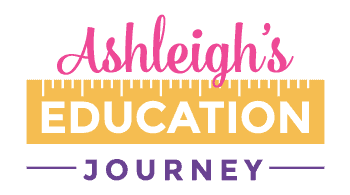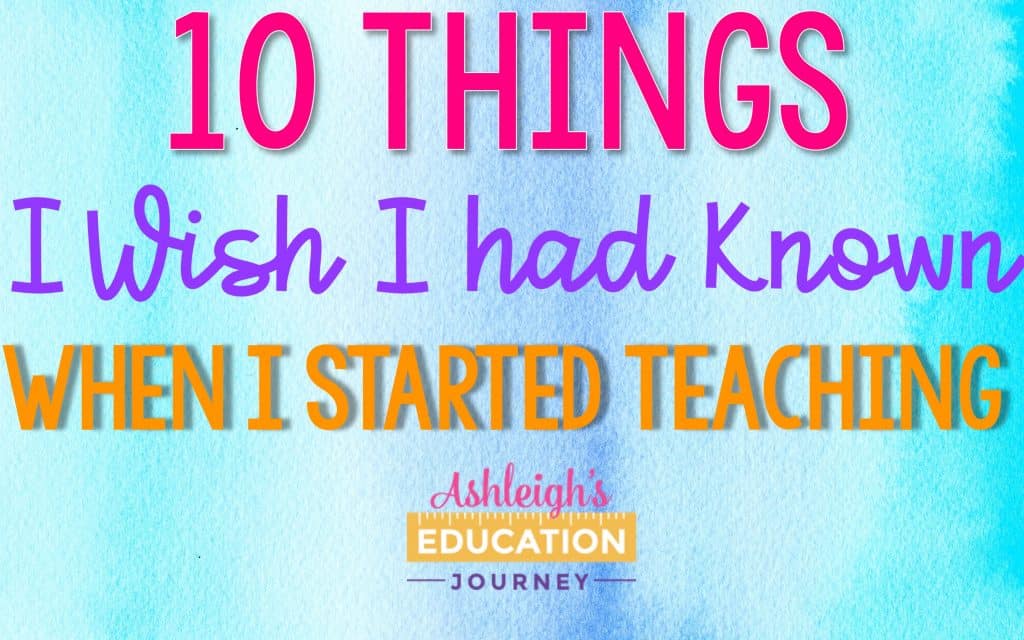I happen to to think that I went to one of the best teacher preparation colleges in the world. And, my supervising teachers were THE best in the world. However, despite that great foundation, there were so many things that can only be learned through experience. Below are 10 things I wish I had known about teaching. Maybe some of these thoughts will save you from a little stress.
Comparison Is The Thief of Joy
I have to remind myself of this daily. I’m in the age bracket where social media wasn’t a big deal my first few years teaching. It existed-I’m not that old! But, there were no teacher Facebook pages, Instagram accounts, or Pinterest boards. While those accounts are awesome for getting ideas, don’t forget that everything you see is a carefully curated post or image that someone wants you to see.
Don’t limit this philosophy to just social media. When you start comparing yourself or your students to other classes in your school or district, you absolutely begin to lose your joy and to gain unnecessary stress.
Choose Your Battles
There will be a lot of battles you can fight. Almost every day there will be something that will upset or frustrate you. There may be policies that make you mad, decisions you don’t like, and mandates that don’t make sense. These potential battles can be with parents, students, coworkers, or administration. It will come from all directions.
Before you get upset, think about the anxiety that choosing to fight the battle adds and the emotional energy it takes from you. Is it worth your time, energy, and peace of mind? You have to be willing to let things go. Don’t let little things turn into big deals.
Of course, there will be some battles that we must fight. I tend to reserve that for things that are really big deals and situations where I have to advocate for my students.
You Will Never Be Caught Up
It won’t happen. It’s a pipe dream. Be willing to leave it at school. You could stay until 7:00 each evening and arrive by 6:00 each morning, and you will still find things that need to be done. Prioritize the essentials and try not to become lost in the details.
As a side piece of advice on this topic, don’t spend hours upon hours grading. There’s no need for that. You definitely don’t need to record a grade for everything your students do.
Have Fun
You can make teaching as hard and as joyless as you want. We all know that teaching isn’t an easy job, so you have to choose to find the positive. No matter where you teach, you will always be able to find things that aren’t right in education. If you let those problems consume you, you’ll quickly lose your passion for teaching.
Think about who you surround yourself with and avoid toxic negativity. Obviously you will be in some situations where you won’t have that option. In those cases, have your eyes wide open and look for opportunities for positivity.
Your students need to have fun too. If you’re bored and your students are bored, maybe it’s time to stop what you’re doing and go completely off-script. It’s okay to veer away content for just a bit. I’ve found that 30 minutes of off topic fun may end up saving me time later on. Make an effort to create fun lessons that you and your students enjoy. It doesn’t have to be a full-fledge dog and pony show, but give yourself something to look forward to.
Relationships
In your classroom, there is nothing more important than the relationships that you build with your students. Obviously, best practices are important, but I’ve seen time after time the importance of relationship with students. They have to know you care. They need to trust you. Things are going to happen in your students’ lives and you’re going to have to be there for them, in serious ways. They may need that relationship to get through some difficult periods in their life.
Classroom management is so much easier when you have a positive relationship with students. I’ve also found that discipline isn’t efficient when you don’t have an existing relationship. I’ve found that the best ways to build relationships include:
- Be slow to anger
- Be careful with sarcasm-I have to be really careful with this. I still use it-the kids love it, but I’m extremely careful to never, ever use it in a hurtful or shameful way.
- Avoid public humiliation and never back students into a corner (metaphorical)
- Smile-It seems so obvious, but it’s too important to skip. Who do you want to be around? Someone who smiles and looks happy to be where they are or someone who looks as if they would rather be anywhere else?
- Laugh-Every single day I want my students to leave my classroom having laughed. I don’t care if it’s at my expense. A classroom should be full of laughter.
- Stories-Students LOVE to hear stories about your life. Having my own children opened a whole new world of stories. They love listening to me tell a funny story about something one of my kids or pets did.
Things Change
In education, nothing will remain the same. You will be presented new curriculum, cutting edge resources, and innovative strategies by “experts” who have never taught or haven’t taught in years. You’ll be told that {insert their platform here} is the best thing for students, that it isn’t going anywhere, that it’s a non negotiable.
Then, you’ll implement it two or three years, and it will be replaced with something new. Things come and go so be ready for the ride and to adapt. The real trick is how you go with it. Don’t let these changes cause excess stress and don’t stop doing what works just for the sake of change.
I typically don’t buy into the hype. Just because someone sells it, doesn’t mean it’s good. You have to be able to discern the quality for yourself. Through a lot of experience I’ve learned that you can make “the research” say just about anything you want it to say.
Sometimes you may not have a choice. During those times I smile and nod and shut the door. Remember, this too shall pass.
You Don’t Need All The Things
I wasted so much money when I first started teaching. Don’t feel like you have to buy all the books to have a huge classroom library or every type of math manipulative. You may inherit a classroom full of things, and until you’re teaching you don’t really know what you will need. Over the years, I’ve found that less is more. Plus, you have too many things, it’s so much harder to stay organized, and that is way more important that a huge collection of things.
Put It In Writing
If it’s not in writing, it didn’t happen. If you have anything important, put it in an email so there is an electronic trail. For confidentiality purposes, you may not want to includes names, but you can still make sure the email trail is there. For instance, if you turn in important paperwork follow up with an email that says “I just wanted to make sure you go the paperwork I turned in to your mailbox during my planning”. If you have a challenging conference or phone call you may want to send an email that summarizes the meeting and the goals from the meeting. This removes any question of whether or not you did something.
You May Have to Fake It
Teaching is wonderful, but it’s not always rainbows and sunshine. You may have to pretend to be excited to see a particular parent come into your classroom one afternoon when you’re ready to go home.
You may have to act like you love a particular lesson or even subject. Your students can easily see your enthusiasm for any topic, and they often end up sharing that same enthusiasm or lack thereof.
As a new teacher, you may even have to face the confidence that you know what you’re doing. Your students don’t need to know that you’re terrified! Now, I don’t even pretend to fake having the answers to everything. You want to be willing to share your mistakes and show how you learned from those mistakes.
Grace
Give yourself grace. You will do things that your regret, say things you wish you hadn’t, and miss golden opportunities. You will have lessons that are a complete disaster, and you will lose your patience. It’s going to happen. Don’t be too hard on yourself. You absolutely cannot expect perfection and have to free yourself from that expectation.
Students also need grade (not excuses or no accountability). You are not working with mini adults. These are children. You can’t expect them to behave like miniature adults or to take on adult responsibility. Things happen, and it’s important to look at the whole child when determining how to handle different situations.
Despite being in the classroom for over 16 years, I’m still learning. I think it’s somewhat funny that none of the most challenging things to learn have anything to do with actual curriculum and instruction. It’s all the extras that are so hard!
Yes, teaching is hard, but it’s so worth it.






